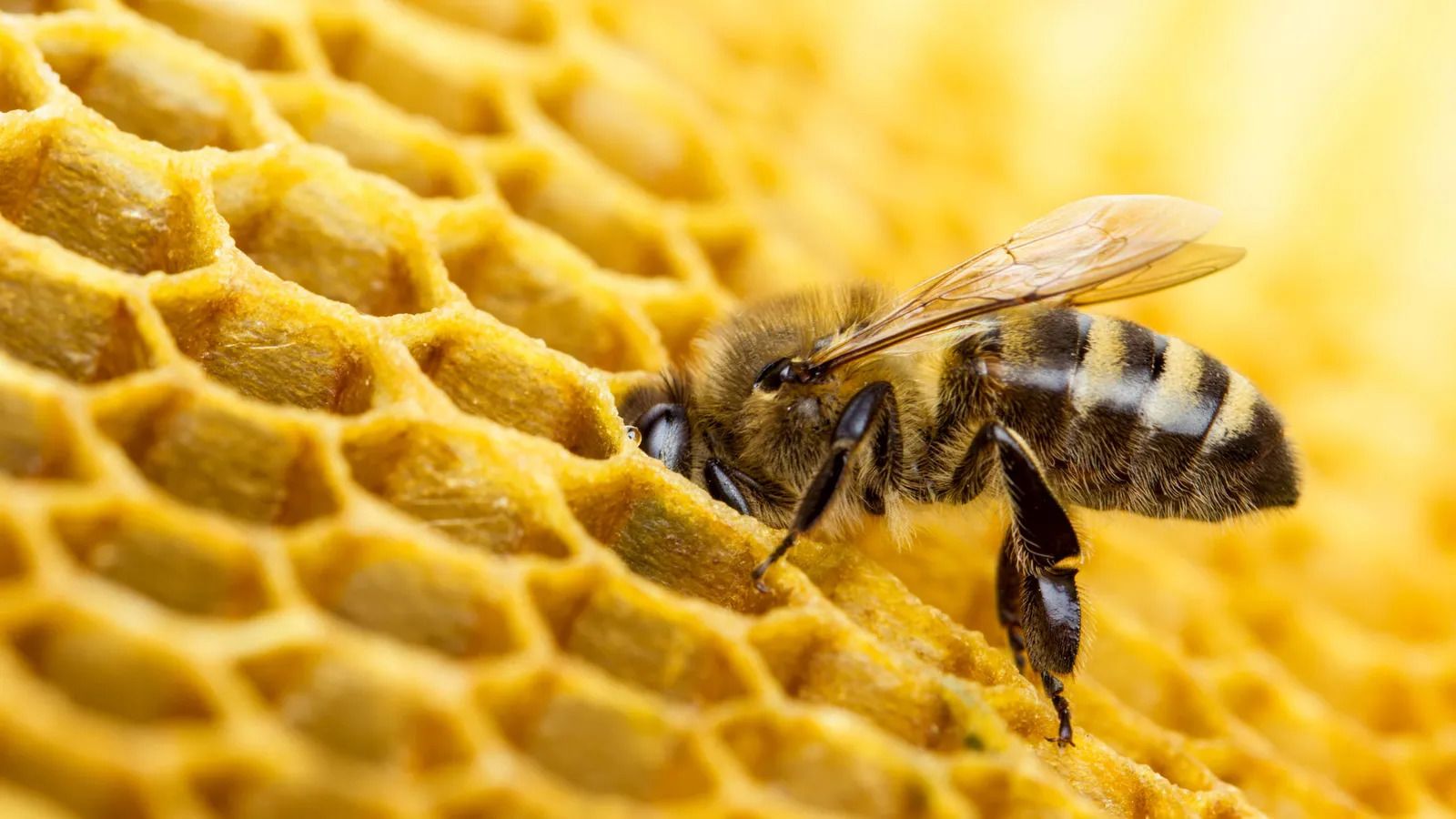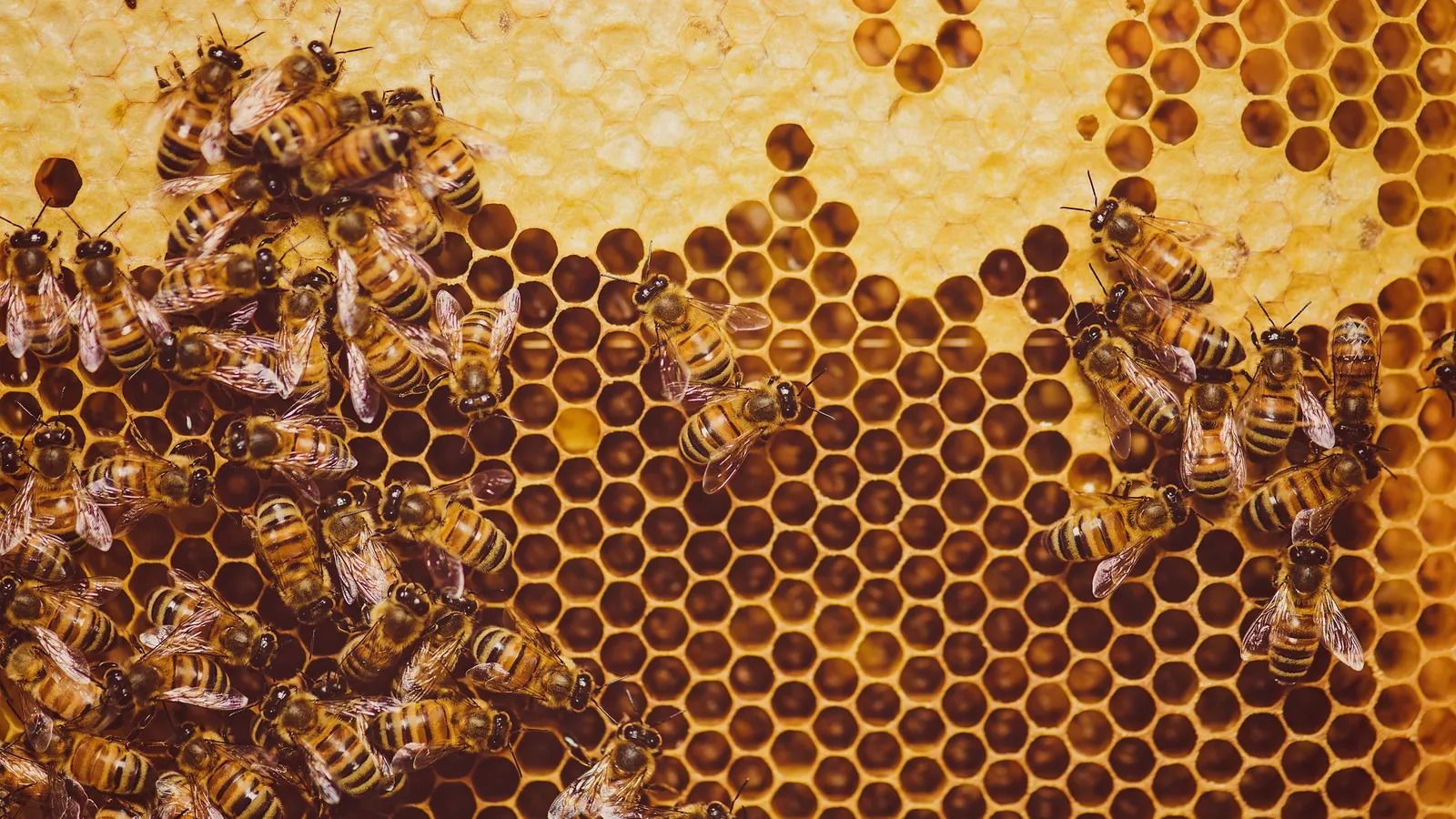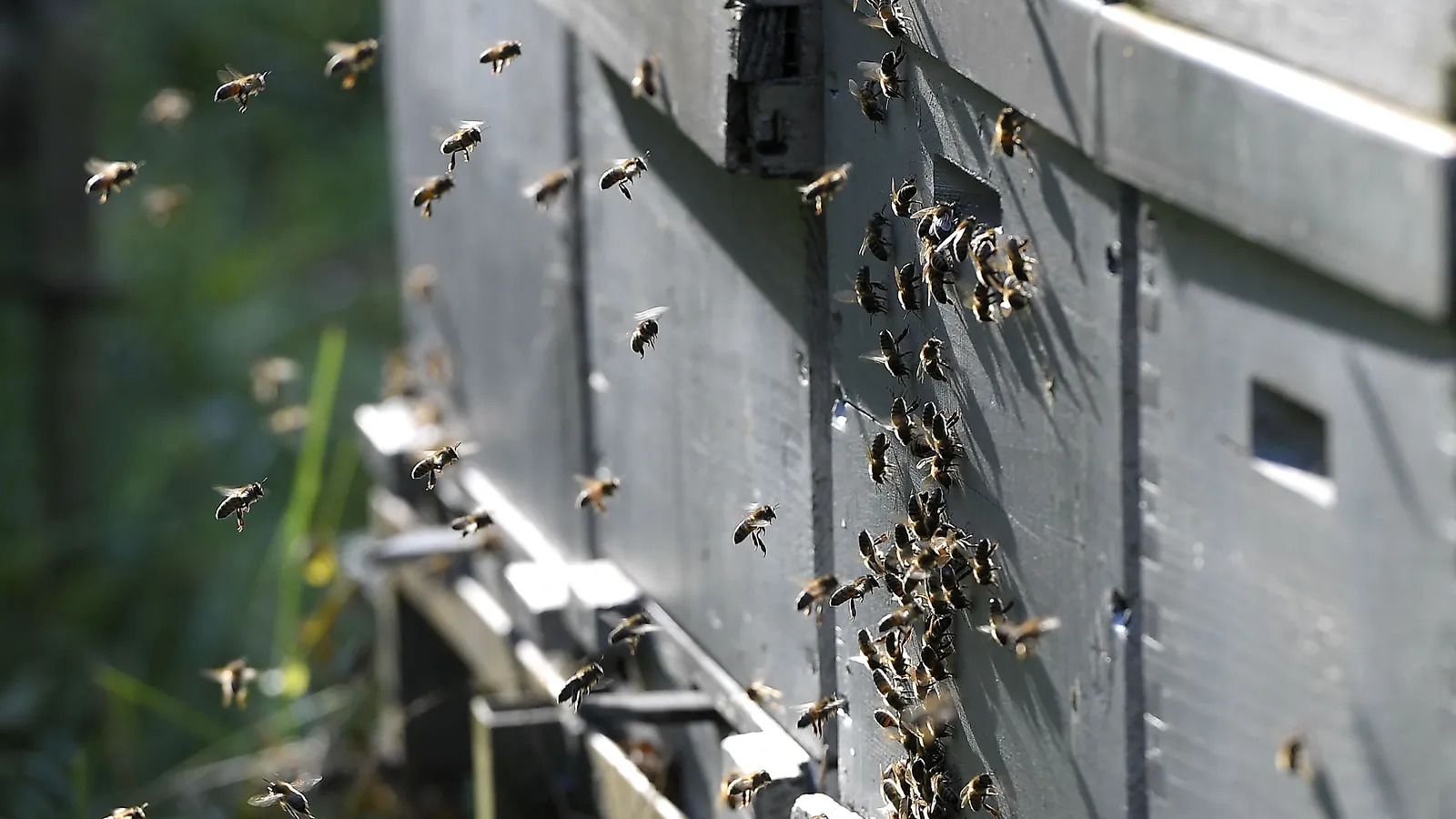
Bee gold: Why honey is an insect superfood
It should come as no surprise that bees know a lot about honey. They aren't only honey producers, they are also consumers, and pretty sophisticated ones at that. Offer a sick bee different varieties of honey, for example, and it will choose the one that best fights off its infection.
People, on the other hand, have a lot of catching up to do when it comes to the nutritional nuances of honey. Just a few decades ago, most lists of "functional foods" – those that offer health benefits beyond basic nutrition – failed to mention it, says entomologist May Berenbaum, of the University of Illinois at Urbana-Champaign. "Even beekeepers – and certainly bee scientists – considered it nothing more than sugar water."
Since that time, a large body of research has revealed that honey is chock-full of plant chemicals that influence honey bee health. Components in honey can help bees live longer, boost their tolerance of harsh conditions such as intense cold and heighten their ability to fight off infections and heal wounds. The findings hint at ways to help bees, which have been hit hard in recent years by parasites, pesticide exposure and habitat loss.
"It's just such a remarkable substance, and I think people maybe still don't quite appreciate it," says Berenbaum.
It's tasty on toast or stirred into tea, but honey is much more than a sweetener. Certainly, the viscous liquid is mostly sugar, which hive members use for sustenance, but it also harbours enzymes, vitamins, minerals and organic molecules that give each honey its uniqueness and confer a slew of health benefits to bees.
A variety of insects can produce honey – bumblebees, stingless bees, even honey wasps – but only honey bees (Apis species) produce enough to stock grocery store shelves. This ability didn't happen overnight; it was millions of years in the making.
 Honey, and the plant compounds within, impart all sorts of health benefits to bees
Honey, and the plant compounds within, impart all sorts of health benefits to bees
Bees made the split from wasps around 120 million years ago, during a surge in the evolution and spread of flowering plants. This floral diversity – along with a shift in bee behaviour of feeding pollen, rather than insects, to bee larvae – spurred the evolution of the approximately 20,000 bee species known today.
Becoming an expert honey-maker took a few more behavioural and chemical tricks. Bees started adding a bit of nectar to the pollen, which moulded it into more transportable bundles. They also developed wax secretion glands, which provided a way to separately store the liquid nectar and solid pollen.
"The wax allows for a very flexible building material," says Christina Grozinger, an entomologist at Penn State University, who studies mechanisms underlying bee social behaviour and health. When forming a honeycomb, honey bees mould wax into hexagons, which turns out to be the most efficient shape to store something, since hexagons pack tightly together. "It's an engineering feat," Grozinger says.
Constructing many small, uniform cells has another advantage: more surface area means water evaporates faster, and less water means less microbial growth.
The process to yield honey that will fill those comb cells begins as soon as a foraging bee slurps up nectar. Though it might look like she is eating it, the sugary snack doesn't end up in her stomach, at least not in the traditional sense. She stores it in her crop, or honey stomach, where it mixes with various enzymes.
One of the first enzymes to go to work is invertase, which snips the nectar's sucrose molecules in half, yielding the simple sugars glucose and fructose (strangely, research suggests that bees don't have the genes to make this sucrose-snipping enzyme – a microbe that lives in bee guts probably makes it). Upon returning to the hive, the honey bee then regurgitates the payload to the first of an assembly line of bees. The mouth-to-mouth passage that follows lowers the water content and introduces more enzymes, processes that continue the nectar breakdown and stop microbes from growing.
 Hexagons are the most efficient shape to store things
Hexagons are the most efficient shape to store things
The bees next deposit the mixture into a hive cell, then evaporate more water by fanning their wings. Another enzyme goes to work – glucose oxidase – which converts some of the glucose into gluconic acid that will help preserve the honey. The chemical reaction also lowers the pH – increasing the acidity – and produces hydrogen peroxide, which prevents microbes from growing but can become toxic at high levels. Still more enzymes, likely brought in with pollen and yeasts, break down some of the peroxide, keeping its levels in check.
Finally, the cell is ready to be capped with wax. Nurse bees will feed the processed honey to other members of the hive and the remainder will be stored for cold or rainy days.
Sweet medicine
Nectar is what led Berenbaum to honey, an interest that first blossomed in the mid-1990s. She knew that nectar was infused with plant chemicals, called phytochemicals: compounds that deter pests and help with plant growth and metabolism. She had a hunch that these phytochemicals were coming along for the ride when bees turned nectar into honey. And if they were, she wanted to know what they might be doing for the bees.
So Berenbaum began probing the diversity of chemicals in honey. In 1998, her team found that different honeys contained different levels of antioxidants depending on the honey's floral origin. "That piqued my interest," she says. Her group later found that honey bees fed sugar water mixed with two honey phytochemicals – p-coumaric acid and the potent antioxidant quercetin – tolerated pesticides better than ones that just got the sugar water. On top of that, the bees that received the water laced with phytochemicals lived longer than the bees that did not, she and her colleagues reported in 2017 in the journal Insects.
Other research has unearthed the effects of additional phytochemicals in honey. Abscisic acid boosts bees' immune response, improves wound-healing time and tolerance to cold temperatures, studies show. Other phytochemicals blunt the impact of parasites, one of the major causes of honey bee decline: for example, giving fungus-infected honey bees a syrup containing thymol, a phytochemical from thyme plants, cut the number of fungal spores by more than half. Phytochemicals have even been shown to inhibit the bacteria that cause European and American foulbrood, the latter of which is so devastating and contagious that burning whole hives is recommended to prevent its spread.
Some phytochemicals seem to do their stuff by enhancing the activity of genes related to detoxification and immunity. When bees are fed nectar phytochemicals such as anabasine, for example, a gene in charge of making antimicrobial proteins dialled up production, a team reported in 2017 in the Journal of Economic Entomology.
 Beekeepers could help the insects by leaving a variety of honey in the hive
Beekeepers could help the insects by leaving a variety of honey in the hive
And phytochemicals might confer health by keeping happy the microbial communities that live in and on honey bees: their microbiomes. Caffeine, gallic acid, p-coumaric acid and kaempferol all improve the diversity and quantity of honey bee gut microbes, researchers reported last year in the Journal of Applied Microbiology. Healthy gut microbiomes in honey bees have been linked to lower intensities of multiple parasitic infections.
Honey bees even choose a health-improving variety of honey when they're sick.
Entomologist Silvio Erler and his team presented parasite-infected honey bees with four honey types. "We simply gave them a choice," says Erler, now at the Julius Kühn-Institut in Germany. The sick bees preferred sunflower honey, which was also the best medicine for the infection and had the highest antibiotic activity, the team reported in Behavioral Ecology and Sociobiology.
Honey bee, heal thyself?
Despite the immunity boost and other health benefits of honey, bees are still in trouble. US beekeepers lost 45% of their colonies between April 2020 and April 2021, the second-to-worst year since the survey by the non-profit Bee Informed Partnership began in 2006. While beekeepers often leave some honey in the hive, having a variety of honey seems to matter: research suggests that different honeys, derived from bees foraging on black locust tree flowers, sunflowers or a mix of flowers, ward off different types of bacteria.
Erler likens this variety to a pharmacy. "We go to the pharmacy... and say we need this for the headache and this for stomach pain. And in the pharmacy, we have all these together."
Despite the immunity boost and other health benefits of honey, bees are still in trouble
But bees are able to build up their honey pharmacy only if the right flowers are available – not just in numbers and diversity, but throughout the growing season, says Berenbaum, who coauthored an overview of honey's impact on bee health in the 2021 Annual Review of Entomology. This biodiversity is lacking in the large crop fields that bees are shipped to each year to pollinate staples like almonds, apples, pumpkins and pears.
Improving the floral diversity does make for healthier bees, says Arathi Seshadri, an entomologist at the United States Department of Agriculture Honey Bee Health Lab in Davis, California. And the USDA incentivises landowners to convert sections of crop land into wildlife areas through the Conservation Reserve Program. "Agriculture has to go on," Seshadri says. "But it also has to sustain pollinators."
Better bee nutrition won't solve all the problems bees face. But making sure that honey bees have access to their own medicine may help, Erler says. Beekeepers, he suggests, could leave portions of the honey made from various blooms in the hive so that bees have a well-stocked honey pharmacy all year long.
And Berenbaum, who began her investigations years ago because she didn't think honey was getting nearly enough research respect, says that the accumulating knowledge is a step in the right direction. "I'm glad," she says, "to see it's finally attracting some attention."











